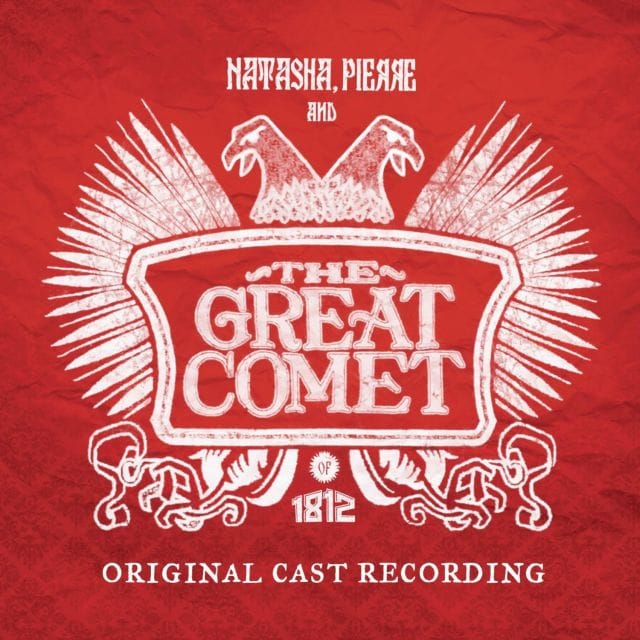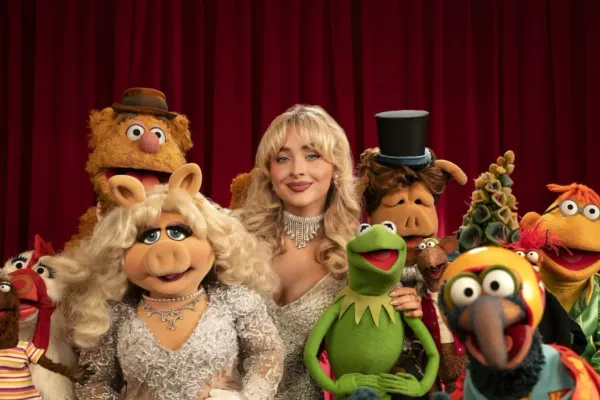Episodes: "The Great Comet of 1812" from Natasha, Pierre and the Great Comet of 1812

(We're talking about Broadway musicals this week, and it's gone better than you might have expected for an idea I half had one night when possessed by the desire to listen to "Superstar.")
Endings are important, but especially in musical theater. A great closing number can save a lackluster second act, can maybe even redeem a show that's struggled, ever so slightly. But the best is when a show that knows itself knows exactly how and where to end.
While this is far from true for all shows, in many, the closing number echoes an earlier one, either directly (as an actual reprise) or in more muted fashion, a previous tune now featuring new lyrics, or a new song building off an earlier one's musical structure. Such an ending is "The Great Comet," which closes Natasha, Pierre and the Great Comet of 1812 by Dave Molloy. I have seen better shows in my life, but I've never had a night that was more perfect than the one I spent at this one, which I saw on a complete whim when I saw tickets were cheap and I thought it had a cool name.
Because you have likely not heard of this show, a little more plot summary than usual is in order. Natasha is adapted from a short section of Leo Tolstoy's War and Peace, which Molloy noticed bore the structure of a classical musical -- if the relationship between Pierre and God could be said to be the secondary relationship of the piece. At the musical's center is Natasha, a young girl newly arrived in Moscow, who is engaged to a man off fighting Napoleon. At the opera one night, she meets the hugely attractive Anatole, and the two become smitten with each other. Needless to say, this is Russia in 1812, so Natasha is immediately judged for her flirtation (and eventual consummation) with Anatole. The two's first kiss closes act one, and act two is almost all fallout, as news of what happened cycles through their circle of friends and Natasha realizes that Anatole is perhaps not as interested in her as she is in him and may be using her for other ends. Pierre, meanwhile, is an aging drunkard, who wrestles with the meaning of life.
Oh, and many of the lyrics are rough adaptations of the prose in War and Peace, Molloy moving things around and changing pronouns as he needs to (so the characters narrate in first person, rather than third), but mostly sticking Tolstoy's awkward, clunky prose into the mouths of his characters.
Also, it's an "electro-pop opera." And it's staged as a dinner theater.
Unless it's not already clear, I love this show. The night I saw it, Taye Diggs and Steven Pasquale were there, and when I looked over at the end, both were in tears. Everybody was. The conclusion takes something already great and elevates it to the transcendent.
I am always wary of works of art that try to do too much. Yes, when it works, there's nothing like it, but when even one element is off, things start to fall apart in immediate fashion. (Arguably, the dinner theater aspect of Natasha was one thing too many, but I didn't have any of the food, so I can't speak to this. It helped with the staging!) Natasha doesn't really make a false step. There are a couple of places where it lags, and it could have done with explaining some of the characters a bit more here and there (though the incredibly fun opening number does an adequate job of this already). The more modern elements beautifully illuminate the archaic social customs at the story's center, and vice versa. For some reason, mashing up Natasha's friend worrying about how the girl has ruined her virtue with a song straight out of the folk singer handbook just works, you know? (Read me writing more about that song here.)
But it's the ending that really takes this show over the top. Natasha, ruined, locks herself away from the world, while Pierre, pulling himself out of his drunken hole, attempts to figure out just what's gone on and how the girl's fates could have turned so dramatically. When he finally goes to her, the entire scene turns on a simple act of kindness, when he tells her something that she needs to hear to be able to go on. Molloy's music strips down to a simple piano backing, then drifts into "The Great Comet of 1812," which echoes and entwines with "Pierre," the song that introduces the character as someone who fears his best days are long passed, even though he's only in his 30s.
"The Great Comet" posits that these small moments are more important to our the overall arc of our lives than the big ones. Natasha might remember the way that her dalliance with Anatole destroyed her engagement, but she'll likely remember Pierre's brief moment of kindness at an equal level. And Pierre, who's been searching for meaning all along, seemingly finds it not just in Natasha's briefly smiling face, but in the comet that seems to have "stopped for me" above a Moscow avenue.
Earlier in the show, Molloy pairs Natasha and Anatole's growing attraction with a loud, insistent drumbeat, the sound of intoxication and infatuation that can't be escaped. But the sound of understanding isn't overwhelming or all-encompassing. It is, instead, the music of a quiet, frostbound epiphany, a quick, momentary thought that blossoms into something much bigger one night in the back of a sleigh on the long, snowy Moscow streets. You don't find epiphanies. You wait for them to be given to you.
--
Yo, I'm sure I will type out at least one of these next week, but I may skip in favor of the holiday and/or my parents coming to town for said holiday. Maybe I will have my mom write one of these.
--
Episodes is published daily, Monday through Friday, unless I don't feel like it. It is mostly about television, except when it's not. Suggest topics for future installments via email or on Twitter. Read more of my work at Vox Dot Com.




